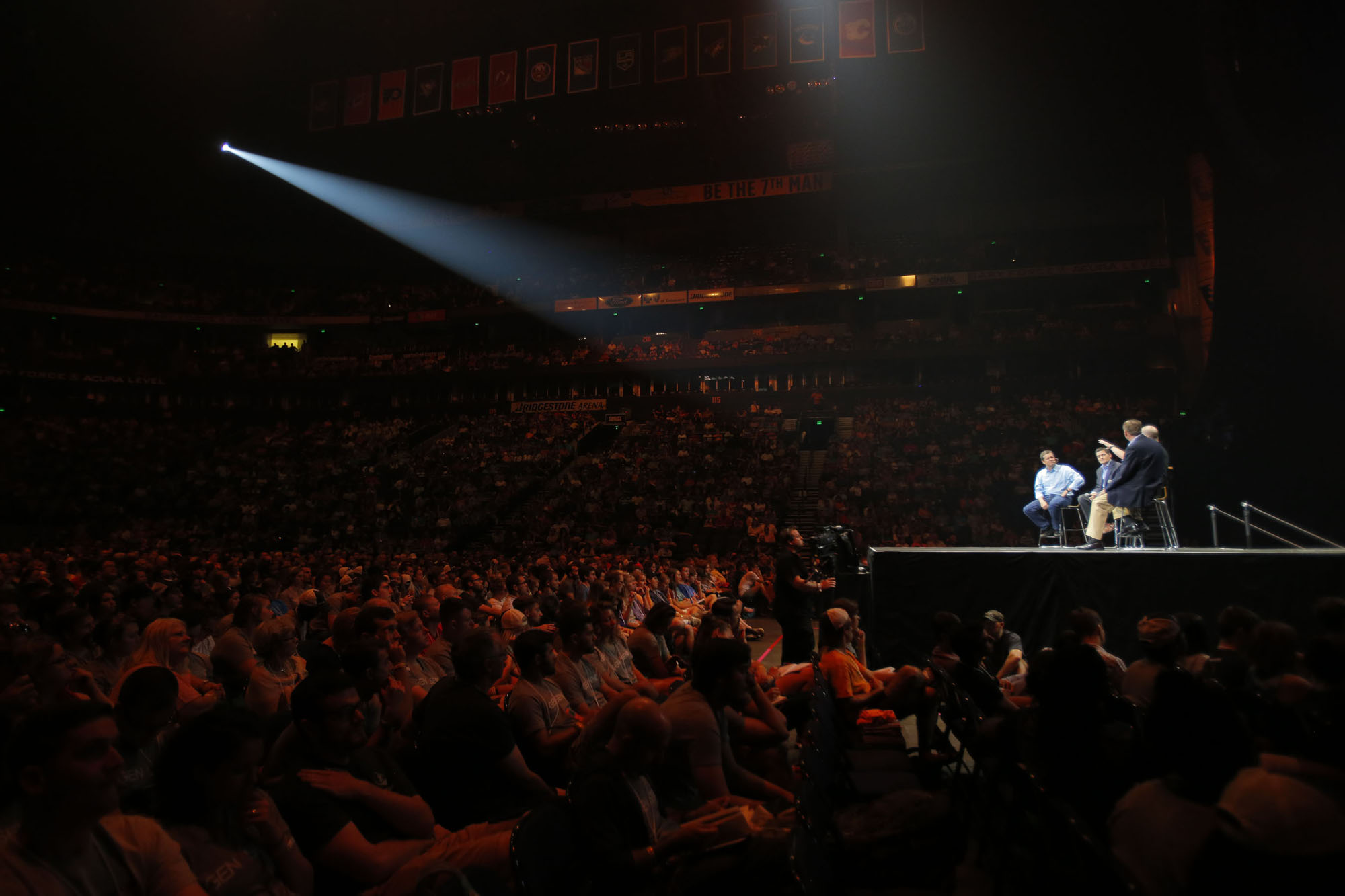
[SLIDESHOW=40870]NASHVILLE (BP) — The role of the Cooperative Program in Southern Baptist life took center stage at the 2015 Send North America Conference during a main session panel discussion led by Kevin Ezell.
Ezell, president of the North America Mission Board, was joined on the platform by Southeastern Baptist Theological Seminary President Daniel Akin, Southern Baptist Theological Seminary President R. Albert Mohler Jr. and Southern Baptist Ethics & Religious Liberty Commission President Russell Moore.
“Each one of these men would tell you — we cannot do what we do, and David [Platt] and the IMB [International Mission Board] cannot do what they do, if it were not for the sacrificial gifts of people in churches who give faithfully every Sunday,” said Ezell, who added he is equally appreciative of “churches who make a commitment to … the Cooperative Program. As they give [through] that, part of that goes to support the International Mission Board, the North American Mission Board, the ERLC and all the seminaries.”
Ezell asked the panelists to share what it means to them to be part of the Southern Baptist family.
Akin said during the Aug. 4 panel in Nashville, “Southern Baptists … have a passion to see the Gospel go to the underserved and unreached areas of the North America and around the world. I can’t think of a better agenda to have, or better brothers and sisters to join together to serve the Lord Jesus to see that accomplished. It takes us all coming together and doing our part.”
Moore said, “Southern Baptists immediately respond to crisis like an earthquake in Nepal. The heart of Southern Baptists is to serve. They are first in and last out in disasters, staying until the end, and while they are doing that they are sharing the Gospel.”
Mohler noted, “My first response is gratitude when I think of what Southern Baptists provide.” Mohler shared that he had benefited from the Southern Baptist Convention even before he was born.
“It was VBS, mission camps, all this put together,” Mohler said of his SBC heritage. “What I would say to young church planters — you are going to belong to somebody. There is no way you are going to do this by yourself. I’m just so thankful that Southern Baptists have been doing this for a very long time.
“That explains why … you have six seminaries with over 15,000 students. That didn’t just happen. Somebody has to come up with a plan. The Cooperative Program is so much a part of that. How else are you going to give to the local church and have it reach so many different places without you having to think about it all the time? Eighty-plus-year-old ladies in Arkansas giving out of their annuity checks made it possible for 13,000, largely very young, people to be in here, and they did not have to orchestrate it, but they want to be a part of it.”
Mohler said the Cooperative Program makes missions possible through not only seminaries and national entities, but Baptist state conventions, as well. “We can go to sleep at night knowing that somebody is telling somebody about Jesus because of the Cooperative Program,” he said.
Ezell said church planters should remember they are not alone.
“What I share with most church planters [is] the beautiful thing about being a part of a family is you are not alone,” he said. “If you’re in Detroit, or you’re in Maine, or you’re in Albuquerque or you’re in California, you are part of a family. We come together from so many different perspectives, I just appreciate the heart and the way you have done that.
“The real purpose of this was to get the family all together to lift up the name of Jesus. We are connecting with people who are like-minded and like-hearted,” Ezell said.
To discover more about the Cooperative Program, visit sbc.net/cp.
Watch the entire panel discussion:
[VIMEO=135725021].
















